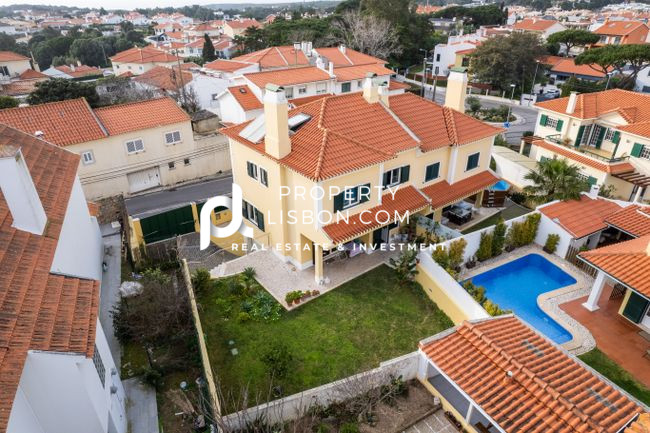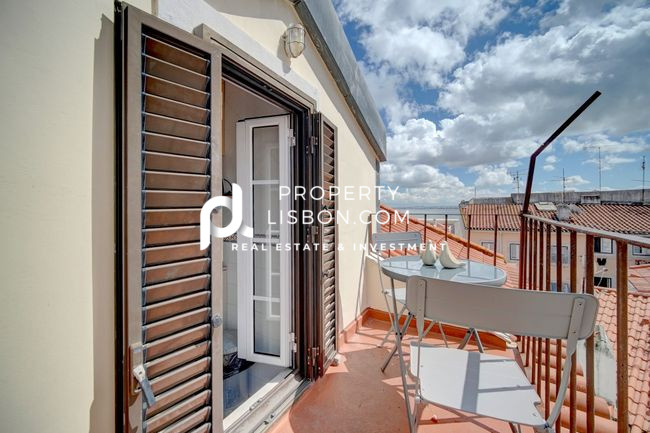
Mortgage Interest Rates in Portugal | Foreign Buyers Guide
Mortgage Interest rates for foreign buyers in Portugal can range from 3% to 6% on average in 2025. Let’s take a look at some predictions
Here are the steps to buying a property in Portugal
The buying process in Portugal is similar to other European countries. The process has three main steps: Reservation, Promissory, and Deeds. Here are the components of the steps to follow:
1: Obtain a Portuguese Tax Number (NIF).
2: Take out a mortgage from a bank in Portugal if needed.
3: Make a down payment.
4: Sign the CPCV (Contrato de Promessa de Compra e Venda).
5: Sign the Deed of Purchase and Sale.
THE PROCESS IN DETAIL
Step 1: RESERVATION
Reservation is not a mandatory step in buying a property in Portugal but gives both parties a degree of security. The reservation fee is usually around €6,000 – €20,000 and is paid to take the property off the market. The reservation fee is refundable if the sale does not go through. This step is important because it stops any other party from coming and making a higher offer as the property is taken from the market.
Step 2: PROMISSORY
The Promissory Contract (CPCV) is a legally binding document outlining the sale terms and conditions. It is signed by both parties and usually includes a deposit of around 10% of the purchase price. This step is important because it ensures that both parties are aware of their obligations and responsibilities.
Step 3: DEEDS
The final step in the buying process is signing the Deeds (Escritura). This is done in front of a notary and is when the purchase price balance is paid. This step is important because it ensures that both parties have fulfilled their obligations and responsibilities.
Other requirements to consider in order to buy a property in Portugal are:

The following legal documents must be verified before and during the buying process. These can be handled by your lawyer, who will make the searches to confirm that the property registered conforms to the building and plot being sold. There’s also the need to check that the vendor has a clear title of ownership and that no one else has rights, charges or mortgages over the property.
Fiscal Number
For a non-resident buyer of property in Portugal, it is mandatory to have a Portuguese Fiscal Number from the local tax office. This number will be used to open a bank account and appear on documents relating to the purchase of the property and associated taxes.
Use Licence
All properties constructed after 1951 need a Use Licence stating what the building can be used for. This also confirms that the property complies with planning permission and building regulations. If the property existed before 1951, a certificate to state this must also be obtained.
Technical Habitation Certificate
This is a mandatory document regarding properties destined for residential purposes completed after March 2004.
Land Registry Certificate
This is issued by the Land Registry Office. It contains details such as the owner of the property, any mortgages or charges on the property, and any other relevant information
Tax Registry Certificate
Issued by the Tax Office.
Energy Certificate
This is a legal requirement and serves to certify the energy performance of the property.
PORTUGAL REAL ESTATE TRANSFER TAX (IMT) AND STAMP DUTY
There are two taxes that must be paid before the completion of the buying process: The Portuguese Real Estate Transfer Tax (IMT) and Stamp Duty.
IMT: Real Estate Transfer Tax Breakdown
Urban property used exclusively for residential purposes: up to 1-10%* | Rural property: 5% |
Urban property not intended exclusively for residential purposes: 1-8% | Property purchased by a company resident in a tax haven: 10% |
The official IMT online calculator can be found at http://apemip.info/info/IMT.cfm
CORPORATE PROPERTY OWNERSHIP
It is possible to acquire property indirectly through an equity stake in an investment vehicle owning such property. This is often done to mitigate tax consequences.

Lisbon, Lisbon Portugal
749,000€
This semi-detached villa, featuring 3+1 bedrooms, is located in Murches, Cascais. The property is set on a 504m² plot and encompasses three floors. It…

Lisbon, Lisbon Portugal
704,000€
Luxury Lisbon Apartments with Premier Facilities We are thrilled to introduce one of Lisbon’s most ambitious real estate developments, redefining urban living and setting…

Lisbon, Lisbon Portugal
200,000€
This 1-bedroom apartment is available for sale in Alfama, one of Lisbon’s most historic neighborhoods. Known for its narrow, winding streets, Alfama combines old-world…
IMI: REAL ESTATE TAX
The IMI tax is based on the property’s rateable value as set by the Tax Department. The rate varies from 0.3% to 0.8% annually.
Urban property: 0.3% to 0.45% | Rural property: 0.8% | Property owned by residents in certain off-shore jurisdictions: 7.5% |
ADDITIONAL IMI (AIMI)
The IMI surcharge (Adicional To IMI) is due by individuals and companies that own urban real-estate properties located in Portuguese territory. However, urban properties classified as commercial, industrial or service-providing are outside the scope of the AIMI. The AIMI is assessed on the sum of the taxable value of the urban properties owned by each taxpayer as of January 1 of each year.
INDIVIDUAL AIMI RATES
Up to €600,000: no AIMI | On the value between €600,000 and €1 million (married taxpayers and unmarried cohabiting couples who opt for an aggregated taxation are granted a deduction of €1.2 million): 0.7% | On the value that exceeds €1 million (married taxpayers and unmarried cohabiting couples who opt for an aggregated taxation are granted a deduction of €2 million): 1% |
These rates also apply when a property owned by a legal entity is allocated to the personal use of shareholders, members of the corporate bodies, or of any administrative, management or supervisory bodies (or their spouses or relatives in the ascending or descending lines).
COMPANY AIMI RATES
On the global sum of the taxable value of eligible properties (companies are not entitled to any deduction): 0.4% | Due on the global sum of the taxable value of eligible properties, whenever the company is resident in a tax haven: 7.5% |
Exemptions: Urban properties which have benefited from an IMI exemption in the previous year are excluded from the surcharge taxable basis.
Stamp Duty
Onerous or free transfers of ownership or parts thereof: 0.8% of the value of the transaction or value of the property, whichever is higher | 1. When you inherit a property; 2. When a property is a donation from someone (spouses, descending and ascending relatives who inherit property or who are the beneficiaries of a donation are exempt) 10% Stamp Duty is payable |
TAX CONSIDERATIONS WHEN LIVING IN PORTUGAL
PERSONAL INCOME TAX (IRS)
If a Portugal resident or non-resident individual receives rental income, the earnings may be taxed.
Residents: 28%* autonomous tax rate | Non-Residents: 28% autonomous tax rate |
However, if the taxpayer chooses to tax the rental income along with the rest of their taxable income, that income will be subject to the IRS’s progressive tax rates, which can go as high as 48%. In this situation, the portion of the taxable income that exceeds €80,000 or €250,000, respectively, is subject to a surtax of 2.5% or 5%. The applicable rate may be lowered to 5% if eligible urban rehabilitation works have been performed on the rented property.
CORPORATE INCOME TAX (IRC)
If a resident or non-resident company receives rental income, the sum of the rent, as well as the costs incurred in order to obtain such income, are included in the taxable result of the company.
Residents: the company will be liable to IRC in Portugal, which is due on its taxable profit at a 21% rate, plus: (i) a municipal surcharge at a rate of up to 1.5% levied on the taxable profit, and; (ii) a state surcharge on the part of the taxable profit exceeding €1.5 million, at progressive rates up to 9% | Non-residents without a permanent establishment in Portugal: 25% |
The Portuguese Government approved a new regime for non-habitual tax residents in September 2009.
It offers foreign residents and investors reduced tax rates and exemptions on some taxes. The NHRs are taxed at a flat rate of 20% on their income and are exempt from paying taxes on global income. The NHR scheme mainly applies to foreigners, but Portuguese citizens can also access NHR, provided they haven’t lived in Portugal for the previous five years before applying.
Eligibility
It is accessible to non-residents who choose to settle in Portugal, providing they haven’t paid taxes as a Portuguese resident in the five years before moving in. Individuals of other nationalities must apply for a residence permit; EU, EEA, and Switzerland residents are automatically entitled to live in Portugal.
Conditions
An individual must fulfil the requirements by becoming a tax resident of Portugal as defined by Portuguese domestic law. This means that they must either have a home in Portugal that can be regarded as their personal and permanent residence, or they must spend more than 183 days there in a calendar year. The regime is accessible for a fixed 10-year duration and is not extendable.
How does NHR taxation work?
The NHR taxation system basically differentiates between income derived from a domestic source and income derived from a foreign source (global income).
Domestic-Source Income
The regime imposes a flat 20% tax on employment and self-employment income derived in Portugal from high-value-added activities of a scientific, artistic, or technical nature. Other than these high-value-added activities, income is taxed at the standard rates applicable to resident taxpayers.
The same regulations that apply to Portuguese residents’ income in terms of rental income, capital gains, dividends, and interest also apply to income earned in Portugal.
Foreign-source income
Employment income with a foreign source is not subject to tax in Portugal if it is taxed in the country of origin in accordance with a double taxation agreement or an OECD model tax convention. In addition, income must not be considered Portugal-sourced under applicable Portuguese law.
Self-employment income obtained from high-added-value activities, royalties, rental income, and capital gains are also exempt from Portuguese tax, provided they may be taxed in the source country under a double taxation treaty or under the OECD-model tax convention. In addition, income must not be considered Portugal-sourced under applicable Portuguese law.
Occupational pension income is exempt from Portuguese tax as long as it is liable to tax in the source country under a double taxation treaty or it is deemed as not being Portuguese-source income under applicable Portuguese law.
Try different settings or refreshing/changing existing ones.
The Non-Habitual Resident (NHR) regime is a special income tax regime that aims to attract professionals of activities considered of high added value and people who are earning retirement pensions and are not residents in Portugal.
It mainly applies to foreigners, but Portuguese citizens can also access NHR, provided they haven’t lived in Portugal for the previous five years before applying.
The NHR tax regime grants preferential tax treatment to new residents of Portugal by offering reduced tax rates and even full tax exemptions for the first ten years of residence.
NHRs are taxed at a flat rate of 20% on their income and are exempt from paying taxes on global income.
Yes the Golden Visa as we know it is ending in 2023 but we expect another Citizenship by investment program to be released in Portugal.
It is expected that the termination of the programme will lead to a decrease in demand for real estate and a subsequent decrease in prices for properties in Lisbon and Portugal at large.
Although the Golden Visa programme may have driven a price escalation in Portugal during its initial period of establishment, the residential market, especially the prime segment, has been consolidated as an investment destination. It has become attractive in price and quality compared to other global destinations, attracting nationalities from all corners of the world. The share of national buyers is also increasingly gaining market share and absorbing many new projects entering the market.

Mortgage Interest rates for foreign buyers in Portugal can range from 3% to 6% on average in 2025. Let’s take a look at some predictions

Lisbon is the Portuguese capital and an absolutely vibrant city that effortlessly blends history and culture into modernity. Nestled on the western coast of the

There’s an undeniable allure to working from anywhere, especially in a country that offers many options. The rise of digital nomadism and remote working in

Buying Property in Portugal Here are the steps to buying a property in Portugal The buying process in Portugal is similar to other European countries.
Already have an account? Log In
Enter your email address and we'll send you a link you can use to pick a new password.
Chat with WhatsApp
Can't find what you are looking for?
Never miss a thing!
Never miss a thing!
Can't find what you are looking for?
This website uses cookies so that we can provide you with the best user experience possible. Cookie information is stored in your browser and performs functions such as recognising you when you return to our website and helping our team to understand which sections of the website you find most interesting and useful.
View our full Privacy Policy here.
Strictly Necessary Cookies should be enabled at all times so that we can save your preferences for cookie settings.
If you disable these cookies, we will not be able to save your preferences. This means that every time you visit this website you will need to enable or disable cookies again.